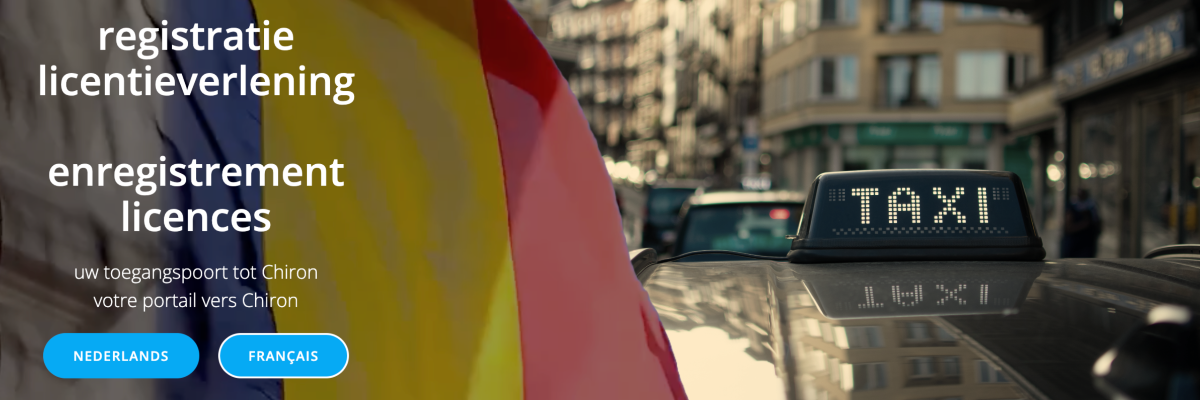MORA, together with the sector, continues to insist on a realistic approach to the environmental requirements for taxi vehicles.
Flemish Minister of Mobility and Public Works Lydia Peeters asked Mora for advice on the draft decree concerning the operating conditions for individually remunerated passenger transport. The MORA established that the original decision was annulled on 30 March 2023 by the Council of State on the basis of a procedural error, in particular the failure to request an opinion from the Data Protection Authority. Given the legal vacuum created by the destruction, the MORA understands the request to handle this request for advice as a matter of urgency.
Council of State test
The nature of the argumentation of the Council of State lends itself to remedying the procedural error and approving an unchanged BVR. However, the MORA is uncertain whether the submitted draft decision, which is identical to the original decision and the subsequent amendment decisions, will withstand a subsequent test by the Council of State. After all, the Council of State has not yet ruled on the substance of the substantive objections that the sector has submitted to the Council.
On March 30, 2023, the Council of State annulled the original decision on the operating conditions for individually remunerated passenger transport on the basis of a procedural error. In order to guarantee legal certainty for the sector again as soon as possible, the MORA was asked for urgent advice on the recovery decision. This draft decree is identical to the original decree, supplemented with the amendments from successive amending decrees.
The need to recreate legal certainty for the sector and local authorities as quickly as possible means that a number of the existing discussion points remain unchanged. According to the MORA, this is a missed opportunity. In earlier advisory reports on regulations regarding individually remunerated passenger transport, the Council repeatedly questioned the language requirements for drivers and the environmental requirements for vehicles.

The MORA understands that the Flemish Government wants to quickly remedy the legal vacuum, but a number of substantive points of discussion remain unaddressed for the time being. Two important examples that the MORA mentions in its advisory letter are the very strict language requirements for drivers and the environmental requirements for vehicles, which for some segments are at odds with the availability of vehicles on the market. That is why the MORA explicitly asks to continue consultations with the taxi sector and the MORA about these discussion points and to look for solutions, including with a view to a possible substantive review by the Council of State in the future.
In the amendment decree of 3 June 2022, the Flemish Government reconfirmed that taxi drivers must achieve oral and written language level B1. In its advice on this amendment decision, the Council maintained its opinion that this requirement is too strict, given the skills required for the position, the current situation on the labor market (post-COVID) and the economic characteristics of the taxi sector. The Council continues to press for a more realistic approach to the language requirements – for example through a specific sector-oriented language training – which does not jeopardize the service to customers.
environmental requirements
De MORA continues to insist with the sector on a realistic approach to the environmental requirements for taxi vehicles. Many companies and drivers have already made the switch to zero-emission vehicles. But in some segments, such as minibuses, there are barely enough vehicles that meet the environmental requirements in the BVR. The MORA therefore repeats its request to support the transition to zero-emission transport in the sector as much as possible by realizing preconditions (sufficiently specific charging infrastructure) and a realistic approach to the environmental requirements.
And although the amendment decision of 3 June 2022 temporarily remedied the problems with the ecoscores predicted by the MORA, the instrument 'ecoscore' remains central to the operating conditions. In both 2019 and 2022, the MORA stated that it is not smart to use an instrument that is not anchored by decree, such as the 'ecoscore', as a measure of environmental characteristics. MORA chairman Daan Schalck and general secretary Tim Buyse trust that the recovery decision will create legal certainty again as soon as possible, but insist that consultations with the sector and MORA (Flanders Mobility Council) continue, with a view to a more optimal regulations for all involved.
the MORA
The MORA advises the Government of Flanders and the Flemish Parliament on the main lines of mobility policy and public works in Flanders and issues advice on preliminary drafts and proposals for decrees, draft decrees and draft cooperation agreements that the Flemish Community or the Flemish Region intends to conclude. with the State or with other communities and regions, the budgetary policy to be pursued with regard to mobility, including the multi-annual investment plans of the entities responsible for traffic and transport, and regular transport operations.



